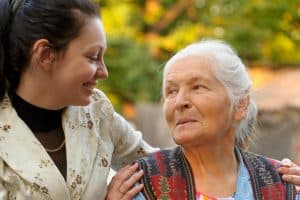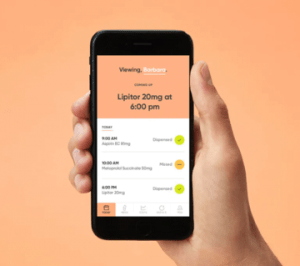
The good news? The Baby Boomer generation hasn’t lost any of their spunk with age. The bad news? It can be even more difficult for their children to keep those aging Boomers safe and living independently at home. Fortunately, there are ways you can have peace of mind while your senior loved ones live at home alone or with a partner. Thanks to strides in technology, keeping tabs on your busy senior loved one is a bit easier, less invasive, and a lot less stressful.
Remote Monitoring Keeps Seniors Safe and Independent
Everyone has different reasons for wanting to know more about their senior loved one’s day and health. Sometimes, a diagnosis of dementia can leave family members feeling extra nervous about what their loved one is doing all day and night alone – are they making unsafe decisions? Are they confused throughout the day? Other times, family members might worry about an aging loved one falling at home and not being able to get the assistance they need when they need it.
No matter your reasons for wanting to keep up with your senior loved one while they are at home, it is clear that remote monitoring technology can keep them safer and more independent. Thanks to remote monitoring technology, older adults and their family members can both be certain the older adult can get the help they need when they need it. Having a way to quickly contact emergency responders when they take a fall in the living room can give seniors peace of mind as well as eliminate the scenario of lying for hours without assistance.
Further, family members who are able to keep up with their aging loved one via an app or desktop dashboard, that comes with remote monitoring technology, are more likely to notice troubling trends. For example, family members might notice their loved one is up more often during the nighttime, signaling a potential urinary tract infection or a new stage in their dementia journey. Family members can take this information to their loved one’s physician and develop a plan for intervention before an emergency arises that could stop the senior from living independently at home.
Ways to Stay Connected

Hero’s app lets you know if your loved one has missed a dose of medication. Image credit: Hero Health
If you are ready to find a remote monitoring system that will help keep you in the loop about your loved one’s activities, you have quite a few solutions at your fingertips. First, you can find remote monitoring technology that solves a specific issue:
- The Hero system is an ideal solution for seniors who struggle with the complex medication schedule they are on. The device not only prepares the designated medications at the correct time, but it also alerts family caregivers if the senior misses a dose.
- Smart appliances can ensure stove burners are shut off in a timely manner or that the fridge door isn’t kept open.
- Home-based systems like Vayyar HOME use sensors that sweep the home to detect falls or other unusual activity that could point to medical issues.
- Technology from the Alarm.com Wellness solution uses motion sensors, doors contacts, bed sensors, and other devices to detect patterns and abnormalities in daily activity and sleep patterns. You can even remotely unlock the front door for emergency responders or neighbors!
If you are searching for technology that provides assistance for your loved one when they are at home or on the go, wearable or home-based systems are your options.
- Wearable technology, like watches or pendants, often have fall detection devices built-in and are able to use GPS and WiFi to contact emergency responders or the monitoring center if your loved one falls or needs help. You can find systems like this from senior-specific companies like Medical Guardian or simply by purchasing an Apple Watch (series 4 and above have fall detection and other medical monitoring apps).
- Home-based systems offer the option to ditch the wearable component and instead use sweeping sensors throughout the home to detect falls or other unusual activity.
The key to any remote monitoring system is to ensure there is the capability to add you and your other family members to receive updates and alerts. Most systems offer an app or desktop dashboard for designated family members so that you can see the most recent information.
Keeping tabs on your senior loved one doesn’t have to feel like an invasion of their privacy. Instead, you can use technology to stay informed and to give your loved one the access to emergency responders as they needed. It’s a win-win for everyone to ensure safety and independence for your loved one for as long as possible.


